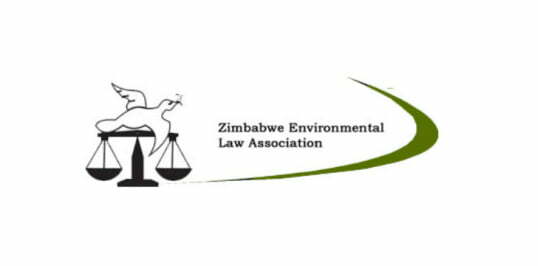ZELA, ZCC, ZIMCODD to host Hurungwe Mining Indaba

In an endeavour to create a platform for communities in Hurungwe district to share experiences in fighting inequalities and exclusionary mining policies and practices within their community, the Zimbabwe Environment Law Association (ZELA), the Zimbabwe Council of Churches (ZCC) and the Zimbabwe Coalition on Debt and Development (ZIMCODD) will on Friday host Hurungwe District Alternative Mining Indaba.
Rudairo Mapuranga
The District Alternative Mining Indaba (DAMI) platforms have promoted legal and policy developments at the national level that promote community benefit from natural resources. The platforms have proven to be effective for citizens to engage duty bearers and Mining companies to lobby for Responsible Mining anchored on transparency and accountability.
The DAMI was organised to Provide communities and non-state actors with a safe space for meaningful dialogue, critique, and analysis of their relationship with extractives and locating pathways to improved lives and livelihoods; Provides the opportunity for capacity building, knowledge and information sharing between communities and non-state actors on key concepts and issues in the extractive industries; and To co-create recommendations and solutions to challenges and gaps, translating mineral wealth and potential to people-centred development that is environmentally sustainable.
The DAMI will be a one-day activity targeting 30 participants (10 males, 20 females inclusive of youths and PWDs). The activity will be conducted at Hurungwe Council Boardroom whereas mobilisation of participants will be done in a non-discriminatory manner and Inclusivity of gender, age, geographical location and institution will be considered. Participants will include ZCC local structures, representatives from ZELA and ZIMCODD while stakeholders will be drawn from the Hurungwe Rural District Council, Ministry of Mines, District Development Coordinator’s office and representatives from Community-Based Organisations dealing with mining in the area. Sessions will include natural resources governance, reading of the context, panel discussions, keynote presentations, plenary sessions and discussions that will culminate in the development of action plans by participants.
Background
Zimbabwe is endowed with a wide variety of valuable natural resources which when managed well has the potential to unlock sustainable socio-economic development. Nevertheless, the mining sector’s potential to turn around the economic fortunes of an impoverished nation is undermined by poor governance characterised by corruption, irresponsible mining and mineral resource leakages in general. Mining is infamously recorded in Zimbabwe as leading to displacements and destruction of communities’ natural environment, livelihoods, and economic, social and cultural bases. The extractive model in Zimbabwe has continuously caused a number of challenges to the community. Environmentally, mining activities have led to biodiversity loss (wildlife, agro-diversity), desertification/drought, food insecurity (crop damage), genetic contamination, loss of landscape, noise pollution, soil contamination, waste overflow and loss of vegetation.
Mining plays a key role in Zimbabwe’s economy, contributing 5% and 23% to the country’s gross domestic (GDP) and total exports, respectively. It also generates foreign currency and supplies raw materials to some industries. In February 2023, projected gold deliveries to reach 40 tonnes in 2023 mainly due to new gold mining projects coming into production, a significant rise from 2022’s totals of 35 tonnes1. Hurungwe District is known for its abundant natural resources, including gold in several Artisanal-Small Scale mining.
However, the exploitation of these resources has resulted in environmental degradation, social conflicts, and human rights abuses. The lack of a clearly defined legal framework has plunged gemstone mining in Zimbabwe, specifically the Hurungwe District. Mining operations in Zimbabwe are governed by the Mines and Minerals Act (CAP 21:05) of 1996. The Act dates to the colonial Act of 1961 which has been revised numerous times. 2 The continued delays in passing and review of the Act to meet the standards required for regulating the mining industry have exacerbated many challenges including the issue of illicit financial flows and gold smuggling. The Aljazeera 3 documentary of 2023 exposed ills in the industry and further illuminated the fears over how gold is being exploited without the beneficiation of the host communities especially where big mining companies are operating. Artisanal Small-Scale Mining (ASM) is also at the centre of problems with gold mining in Zimbabwe including corruption, sexual exploitation, gangsterism, violence, health hazards and environmental degradation to mention but a few. Small-scale mines control up to 65 per cent of active gemstones and gold deposits in the country, according to the Zimbabwe Miners Federation (ZMF). An estimated 1 million people earn a direct livelihood in the artisanal, small-scale mining industry. 4 In Hurungwe, many artisanal miners have been pushed into mining by poverty and the loss of their agricultural land to mining. Many find themselves vulnerable to dangerous conditions, violence, and extortion because of their illegal status. 5 Unsafe mining practices done by ASM have made the area an environmental eye-sore as visibly abandoned mining pits are seen everywhere even on roads, posing a danger not only to people but also to their livestock that are often trapped into these gullies. The inverse relationship between development and exploitation in Hurungwe raises a lot of questions on whether mining has changed the lives of the people in the mining area. The adoption of the Devolution Framework in 2020 sought to address the issue of devolving powers as well as resource distribution in Zimbabwe.
However, Hurungwe District still lacks the basic infrastructure for a community host to vast deposits of minerals. Russian and Chinese small-scale companies operate in the district, but community beneficiation has been the least of the concerns of the companies as well as the government where the investment deals are made a secret violating the principles of transparency and accountability. It is therefore against this background that the ZCC, ZELA and ZIMCODD organise indabas annually to discuss and co-create solutions together with the government, private sector, and local communities and form collaborations and networks with CSOs towards the 12 billion Mining Economy by 2023.


